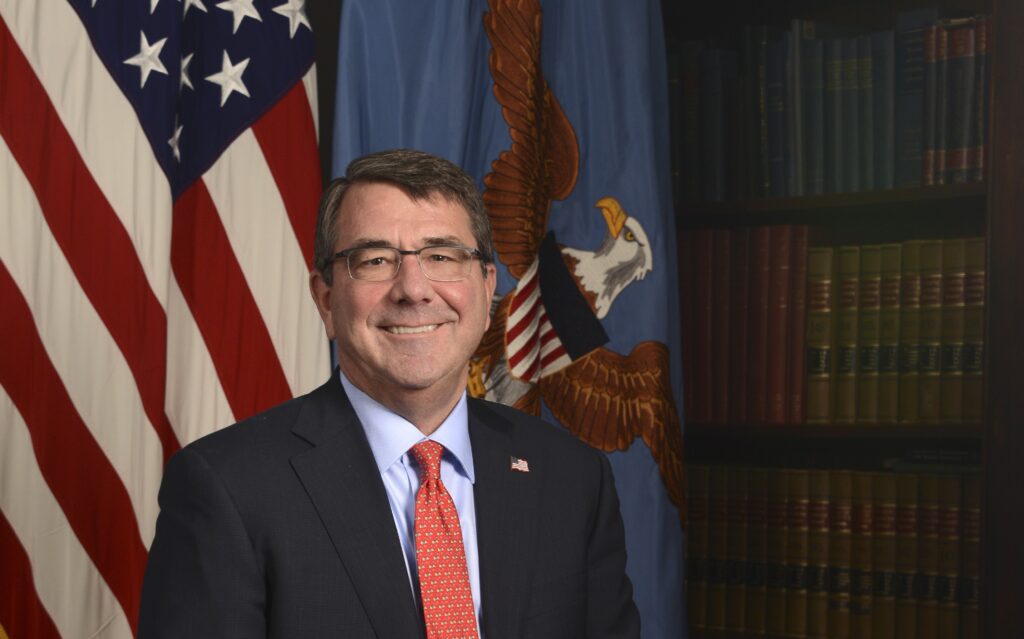 Updated with Pacific Air Forces comment AFA CONFERENCE: Just as the White House confirmed Chinese President Xi Jinping will visit at the end of this month, Defense Secretary Ash Carter issued a clear call for “an immediate and lasting halt to land reclamation by all claimants” in the South China Sea. China, of course, has done the vast majority of the island-building.
Updated with Pacific Air Forces comment AFA CONFERENCE: Just as the White House confirmed Chinese President Xi Jinping will visit at the end of this month, Defense Secretary Ash Carter issued a clear call for “an immediate and lasting halt to land reclamation by all claimants” in the South China Sea. China, of course, has done the vast majority of the island-building.
“We also oppose any further militarization of disputed features. We all know there is no military solution to the South China Sea disputes. Right now, at this critical juncture, is the time for renewed diplomacy, focused on a finding a lasting solution that protects the rights and the interests of all,” Carter told a standing room only audience at the Air Force Association’s annual conference.
We hear that these territorial disputes — and the related issue of US rights to travel wherever and whenever it wishes in international waters and airspace — will be high on the agenda during Obama’s discussions with the Chinese president. Also, there are conflicting reports about whether the US tacitly observes a 12 nautical mile limit around the islands, which would seem to raise questions about the vigor with which the US rejects the Chinese claims. One well informed source says US forces are operating under orders to grant the 12-mile limit. But a second source adamantly denies this.
“After all, turning an underwater rock into an airfield simply does not afford the rights of sovereignty or permit restrictions on international air or maritime transit,” Carter said. In a clear signal to American allies who have worried that the United States is not sending clear unmistakable messages to Xi and his increasingly assertive country, Carter said that, “China is out of step with both the international rules and norms that underscore the Asia-Pacific’s security architecture, and the regional consensus that favors diplomacy and opposes coercion, including bilateral and multi-lateral exercises, joint operations, and the new US Maritime Security Initiative.”
UPDATE BEGINS Later that afternoon, Pacific Air Forces commander Gen. Lori Robinson warned American rights of free transit were at risk if the Chinese “militarize” the airstrips they’ve built on artificial islands and use them as bases for air patrols.
“The concern as they put down the 10,000 ft runway [in the Spratly Islands, large enough to accommodate a heavy bomber] is the ability now to maybe put down an Air Defense Identification Zone and then to defend it,” Robinson said. “As we hear Dr. Carter say this morning, everybody is allowed to operate in international airspace and sail in international waters — and if they militarize those runways, it will threaten our ability to do that.” UPDATE ENDS
The Russians Are Coming
Carter grouped Russia and China together as countries “pursuing military modernization programs to close the technology gap with the United States. They’re developing platforms designed to thwart our traditional advantages of power projection and freedom of movement.”
My colleague Tony Capaccio of Bloomberg, acknowledged as the Budget King by most defense reporters, broke the news yesterday that the Pentagon is reshaping its 2017 budget to meet the threats from Russia in particular.
“The thing that we have the most thinking to do about in this budget compared to any other previous budgets is Russia,” Michael McCord told Tony. He said there will be changes made to the budget, now under construction, to counter Russia. So the administration may be deeply committed to the Pacific rebalance, but there are clearly competing demands for both resources and policy focus.
Carter also used his speech to remind Congress that his department will lost $38 billion of its requested budget should lawmakers pass a year-long Continuing Resolution, which would freeze the budget at least year’s levels and bar any new programs from starting. There are, as Carter noted, “only 14 days left in this fiscal year” for the Hill to do something. Air Force Secretary Deborah Lee James has said at least 50 smaller programs would be scrubbed under a CR.
Sydney Freedberg contributed to this article.
No service can fight on its own: JADC2 demands move from self-sufficiency to interdependency
Making all-domain operations a warfighting capability means integrating, fusing, and disseminating a sensor picture appropriate for a particular theater segment, not all of them, says the Mitchell Institute’s David Deptula.



























